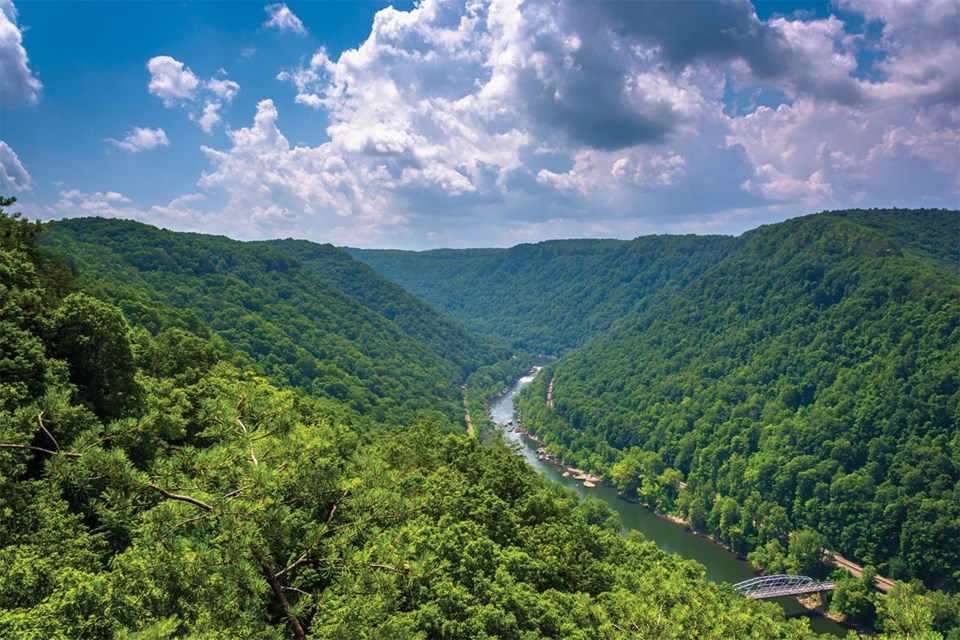Appalachia can humble people who think they have an ingrained GPS. I had flown into Pittsburgh, incorrectly assuming I had landed east of the city, then spent the next 15 hours resolutely determined that west was east.
Rarely has my inner compass betrayed me during my travels amid the North American West's tall mountains and wide valleys. Amid the tree-covered hills and hollows of Appalachia, though, I felt like a whirling dervish, a Sufi mystic seeking enlightenment through dizziness.
My trip to Pittsburgh had dual missions: a conference but also an assignment to write about coal communities in transition. "When you think of coal, everybody thinks of Appalachia," my editor in Chicago had said.
Well, actually, I think of the giant open-pit minds of Wyoming, the giant shovels trawling across the prairie like some giant prehistoric beasts, or the coal mines near Steamboat Springs or west of Telluride, both ski resorts in Colorado.
But Appalachia it was to be, so I drove from Pittsburgh toward coal country, guided by signs southward. But then I saw a sign for Prosperity. I've spent my life seeking Prosperity. I had to see what it looked like.
Getting off the almost straight and wide interstate, I found country roads too narrow for shoulders with more curves than a bowl of spaghetti. Everywhere were flags. This part of the United States waves the red, white and blue from porches, fences and barns.
Prosperity itself was quite small: a few houses and a general store, where two young women dished up a sausage sandwich with hot chiles. Outside, I looked toward the setting sun. Momentarily, I had my bearings.
Rust belt cities and poorer, rural areas together put Donald Trump in the White House. Taken as a whole, Appalachia was all in for Trump. Pittsburgh, on the edge of Appalachia, was not. It was the continent's preeminent steel town. Even today, you can detect the carbon residue in mills. But when the mills closed it reinvented itself, hopping the high curb between the industrial era and the new, digital world. Now, Google tests self-driving cars and doctors calculate cures. It's a place of prosperity, unlike the rural Appalachia towns.
South in West Virginia, life along the interstates is a lot like the rest of America. But on those country roads that John Denver sang about so many years ago, it's another story: hills and hollows, hollow and hills. This is officially the mountain state, teams for the state's only university called the mountaineers. Away from the interstates, it's a different story of mountains, 500 mountaintops beheaded in the last few decades in pursuit of coal.
You cannot travel far in West Virginia without seeing a memorial to victims of coal-mining disasters. These are not all in the distant past. One memorial at Beckley remembered an underground explosion in 2010 that killed 29 miners. The mining company chief executive was convicted of shaving corners on safety and spent a year in jail. Now, he's trying to get elected to the U.S. Senate. Touring an old coal mine, I learned of the desperate lives of miners, of the little tricks they learned to stay safe while working in the darkness amid the ever-deadly methane.
There are wiser heads in West Virginia, who seek ways forward. They just don't get sent to Washington. Too much of the state is stuck in the past. w
But give that past its due: Appalachia mined the coal that fed the foundries and mills of the industrial revolution. But it's an irony that this foundation for our great, prosperous cities of North American has remained mostly poor and rural. Even today, the largest city has only 51,000 people.
During my visit in early October, leafs of the hardwood forests were just turning, lovely even so. For my story I had interviewed a woman who had grown up in this coal-mining country then left when young for a new life in the Gallatin Valley, near Yellowstone National Park. When her husband there had died, she felt summoned home to the hills and hollows and big rivers of West Virginia.
That wouldn't be my choice. I fear I'd get lost and hyperventilate of terminal dizziness. But I saw enough of West Virginia to respect her decision.




